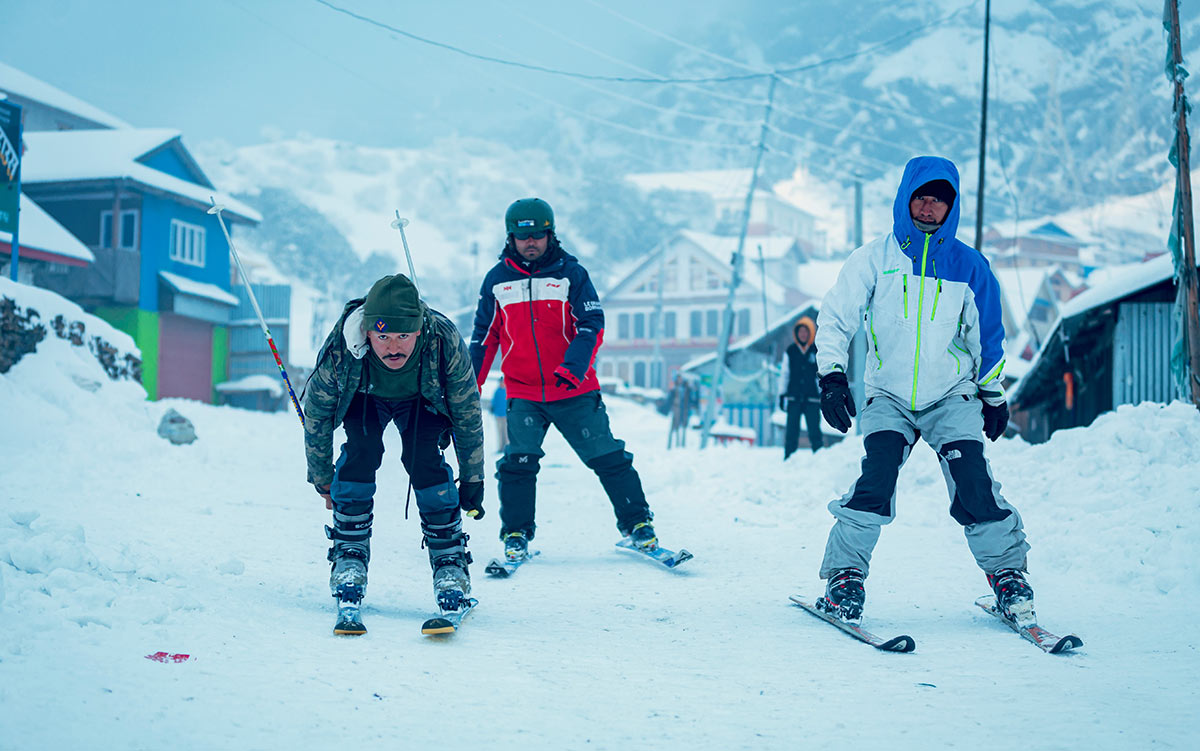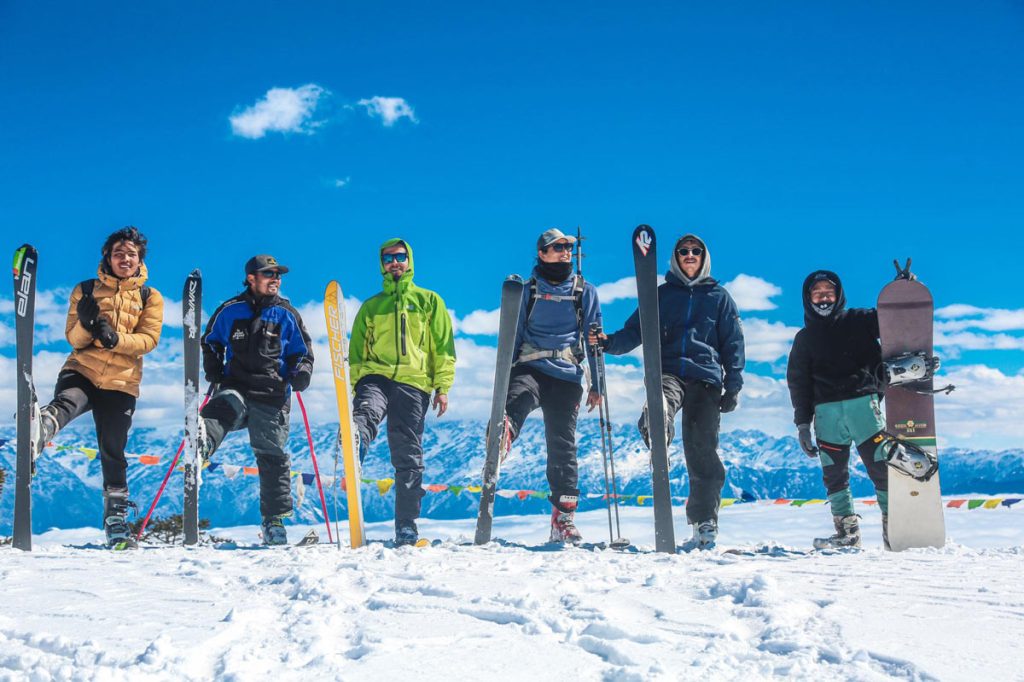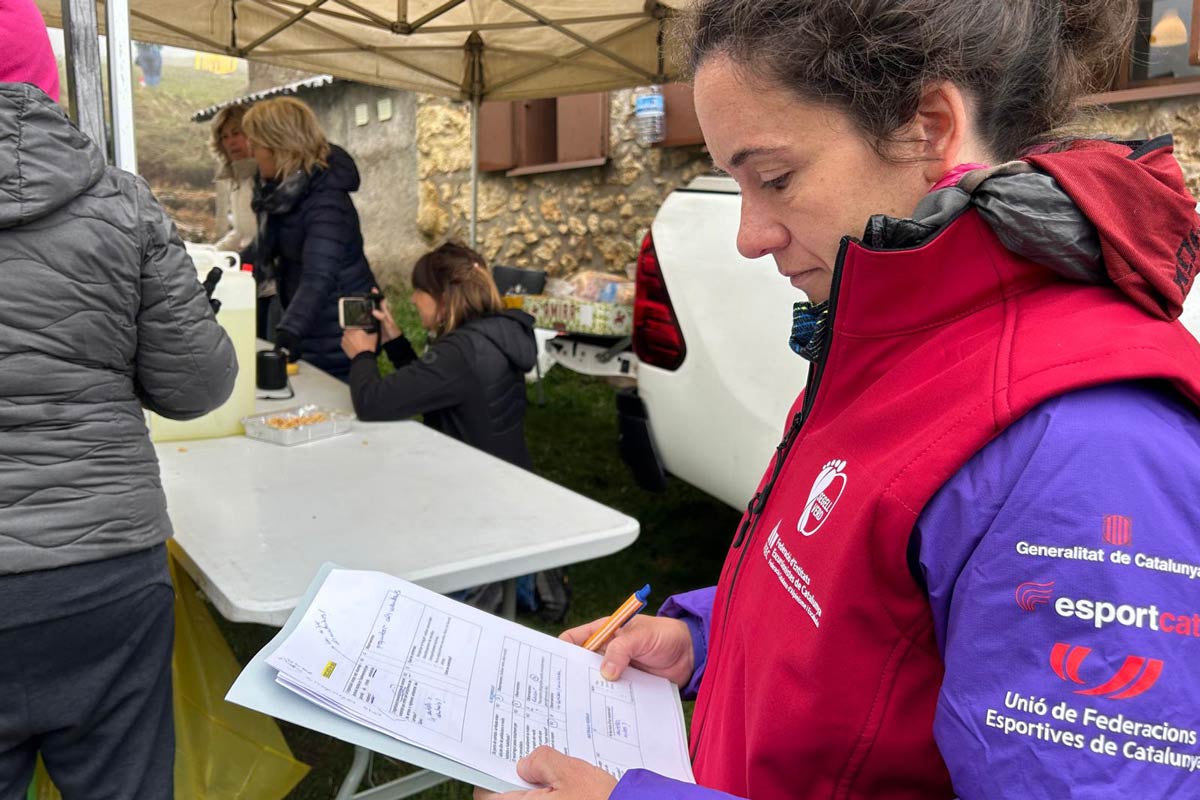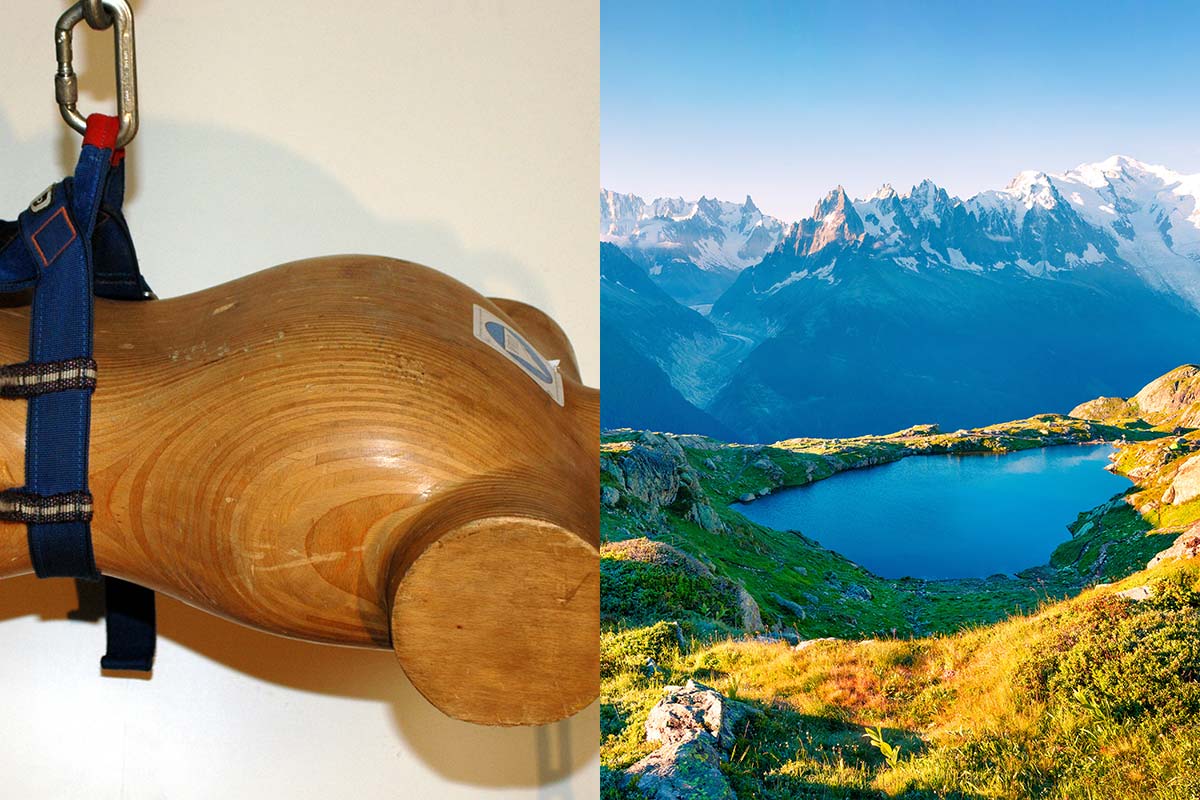OVERVIEW
The Nepal Foundation for Ski and Snowboarding (NFSS) aims to teach Nepalese youth skiing, snowboarding and ski touring. With the support of a group of international ski instructors who were keen on sharing their skills and knowledge with Nepalese tourism students we started a dual track ski school project. While on the one hand we train mountain guides how to conduct ski tours securely with tourists, we teach Nepalese students and youngsters how to ski and snowboard. Avalanche safety, rescue methods and sustainable tourism courses form a core part of our capacity building. Due to the existing infrastructure of lodges and tea houses in the Nepalese Himalaya we created a previously non existing winter season for young tourism entrepreneurs to facilitate sustainable income for locals and train them in winter sports and safety aspects thereof.
—
Vision, goals and objectives
The Ski and Snowboarding Foundation Nepal (NFSS) is a non-governmental non-profit organisation, founded in January 2016 by Utsav Pathak and Julius Seidenader collaborating with other friends with the aim of developing snow sports in Nepal. The Foundation aims to promote Nepali tourism sector by developing sustainable ski and snowboarding, while protecting the sensitive mountain regions in Nepal.
After the devastating earthquake which hit Nepal in 2015, Nepali students and mountain guides initiated the Ski and Snowboarding Foundation Nepal. In a next step, we collected 50 sets of used ski tour sets and imported them to Nepal. Currently we have around 70 sets of skis, snowboards, split boards, skins, avalanche beacons and probes.
The Foundation has the vision to teach Nepalese youngsters skiing, snowboarding and skitouring. With the support of a consortium of Austrian, German, Swedish and Swiss ski instructors that were keen to share their skills and knowledge with Nepalese tourism students we started a dual track ski school project. We train mountain guides how to conduct skitours securely with tourists, and at the same time we encourage Nepalese students and youngsters to learn how to ski and snowboard. This capacity building project has led to a strong empowerment of rural mountain communities, created new jobs and expanded the tourism season.
Furthermore, we raise awareness of the drastic temperature changes in the Nepalese Himalayas by showing the world the changing mountain landscape and the ever quicker retreating glaciers. By engaging in this capacity building efforts we have a strong focus on preserving the pristine and unique mountain environment in Nepal. In addition, we are teaching professional avalanche search and rescue courses to all our students to mitigate accidents, to build the necessary capacities for ski guides and raise awareness of the risks to the whole mountain community.
The objective was to use the existing tourism infrastructure of the lodges and trails in the Nepalese Himalaya, which are not being used in the winter season, without building new ski resorts. So far, our Foundation created a new tourism season, new jobs and successfully promoted a new and sustainable sport in Nepal.
Expected implementation and outcomes
In the last six years we have conducted over 15 comprehensive and systematic ski courses with to more than 400 students from all over Nepal. The beginner’s course, Level 1, covers the basics of skiing or snowboarding and was the most popular format. This training is usually offered at the gentle slopes of Kalinchok (3400m) in Dolakha, a 6-hour drive from Kathmandu. Moreover, we have conducted one Level 1 ski course in the far west of Nepal in the district of Humla. Possible funding would go into the sustaining of our ski gear used at the site at Kalinchok. Ski wax, new boots, climbing skins and other items that are hard to obtain in Asia and require a lot of maintenance.
Level 2 is an advanced component and requires a theoretical and practical course followed by an examination. It includes an introductory course into probing for avalanche victims, search and rescue and avalanche mitigation. Usually, we teach this course in the Annapurna Base Camp (4100m) which requires a 3-day trek. There we have perfect conditions to not only learn skiing but to ascent on skis and safely learn how to judge the slope and snow conditions to assess avalanche conditions. Additional funding could contribute to the purchase of additional avalanche beacons and probes which are extremely scarce in Nepal.
Level 3 is the second-highest and most demanding course that requires not only ski skills, but also has an advanced avalanche and crevasse rescue component. This is required for skiing / splitboarding on glacial terrain and other more exposed mountain regions in Nepal. We have offered this course on the slopes of Mera Peak (6474m) which offers the perfect slopes for advanced skiers and perfect conditions for crevasse and avalanche trainings. The course has also been implemented at Khang La Glacier (5600m) where NMA usually trains on of their components for the Mountain Guide training.
Level 4 trainings have been conducted in India, Gulmarg. Two female students joined the level 4 training, Phenchoke Sherpa and Kelsang Shrestha are already providing level 1 courses to Nepalese Students. However, due to the Corona Virus Pandemic and the closure of the ski resort in Gulmarg in 2019 due to the armed conflict in Pakistan/India we have terminated this training abroad for now. Possible funding would contribute to travel costs for our advanced students to India.
Currently we are still working on a Level 5, instructor course. We attempted to obtain visa for a number of our trained Level 3 students to obtain German/Austrian ski instructor certificates in Germany/ Austria, but our visa application has been rejected several times.
Once we finalize the training of Nepalese instructors our project will be completed, and our last milestone will be achieved. Tentatively this could be in five years from now in 2026.
Climbing, mountaineering or outdoor sport focus
Since we have trained dozens of Nepalese mountain guides, who completed NMA courses, we have ample experience and our core focus is on mountain sports. Ski Mountaineering, Splitboarding courses and capacity building on alpine risks, high altitude mountaineering and ice climbing workshops are other activities. We have also carried out avalanche workshops, first aid workshops and continued the exploration of new Ski Mountaineering areas.
Moreover, members of our project achieved the first ski descent of Ramdung Go (5995m) in 2016. One year later, we successfully completed the first Nepalese Ski Expedition to Mera Peak (6474m). In April 2021 Mahan Pandé managed to complete the first Snowboard descent of Mera Peak. Moreover, Sukdev Thapa and Mahan Pandé have explored the region of Mustang/Muktinath, in the context of a feasibility study, and conducted several first descents on ski and snowboard of 4000 and 5000m peaks.
Hence, our project has contributed to a new momentum in the Nepalese Climbing community by empowering stakeholders and through capacity building. In the last years we could witness first descents on skis by Nepalese mountaineers, the exploration of new areas for ski mountaineering and a fast progress in the realm of avalanche awareness and rescue skills for dozens of our former students. This supports a broader trend of Nepalese Climbers professionalization in mountaineering. More technical first ascents, incredible sports climbers and a new attitude towards safety and new gear are other factors that have contributed to the growth and popularity of mountain sports for Nepalese. Skiing and Split Boarding are mainstream sports in America and Europe, but hardly in Asia. Nevertheless, through capacity building, workshops on safety and new gear this can change over time.
Best practice in mountaineering and mountain-based sports for mountain protection
Our project is unique because not only do we use recycled skitour gear and use the existing infrastructure in Nepal. Furthermore, we are the first and only ski school in Nepal that offers snowboard and ski trainings. At the same time we are the highest ski school in the world and have a unique training ground. The Himalaya is currently facing some of the fastest temperature changes caused by climate change. Even in Altitudes above 5000m we can witness these drastic changes. Raising awareness for the climate crisis by facilitating our trainings also does us make stand out from other ski schools around the globe. There are almost no avalanche beacons available in Nepal and only few trained rescuers. Improving the avalanche awareness, search & rescue skills, and tour planning is crucial for anyone in the mountains. This capacity building is extremely important for villagers, trekking guides and mountain guides on expeditions.
Moreover, we do not only facilitate Skitour racing, but we promote systematic and structured training to villagers in remote areas, youngsters, and professional mountain guides. In total we have trained more than 400 students how to ski on a level 1 basis. At the same time, we have collected and maintained a significant amount of ski tour and split board gear and transported it to Nepal.
In this context we also represent Nepal in the International Ski Mountaineering Federation (ISMF) and in the World Snowboard Federation (WSF). We have thus organized and implemented the first Ski Mountaineering and Snowboard races in Nepal’s history and are planning to carry out more events in the future. With the possible inclusion of Ski Mountaineering in the Olympic Family of winter sports, our students are already dreaming about participating in vertical races at the Olympics 2026 in Milano.
Our main work consists of the structured trainings that we offer to all Nepalese age groups, without discriminating for gender, cast or ethnicity. This work has also strongly empowered girls and women that have undergone our training activities and provided a lot of positive feedback. After completing our last milestone, new opportunities will be once more generated by creating jobs as ski and snowboard instructors.
—
To discover more about the UIAA Mountain Protection Award please click here.




